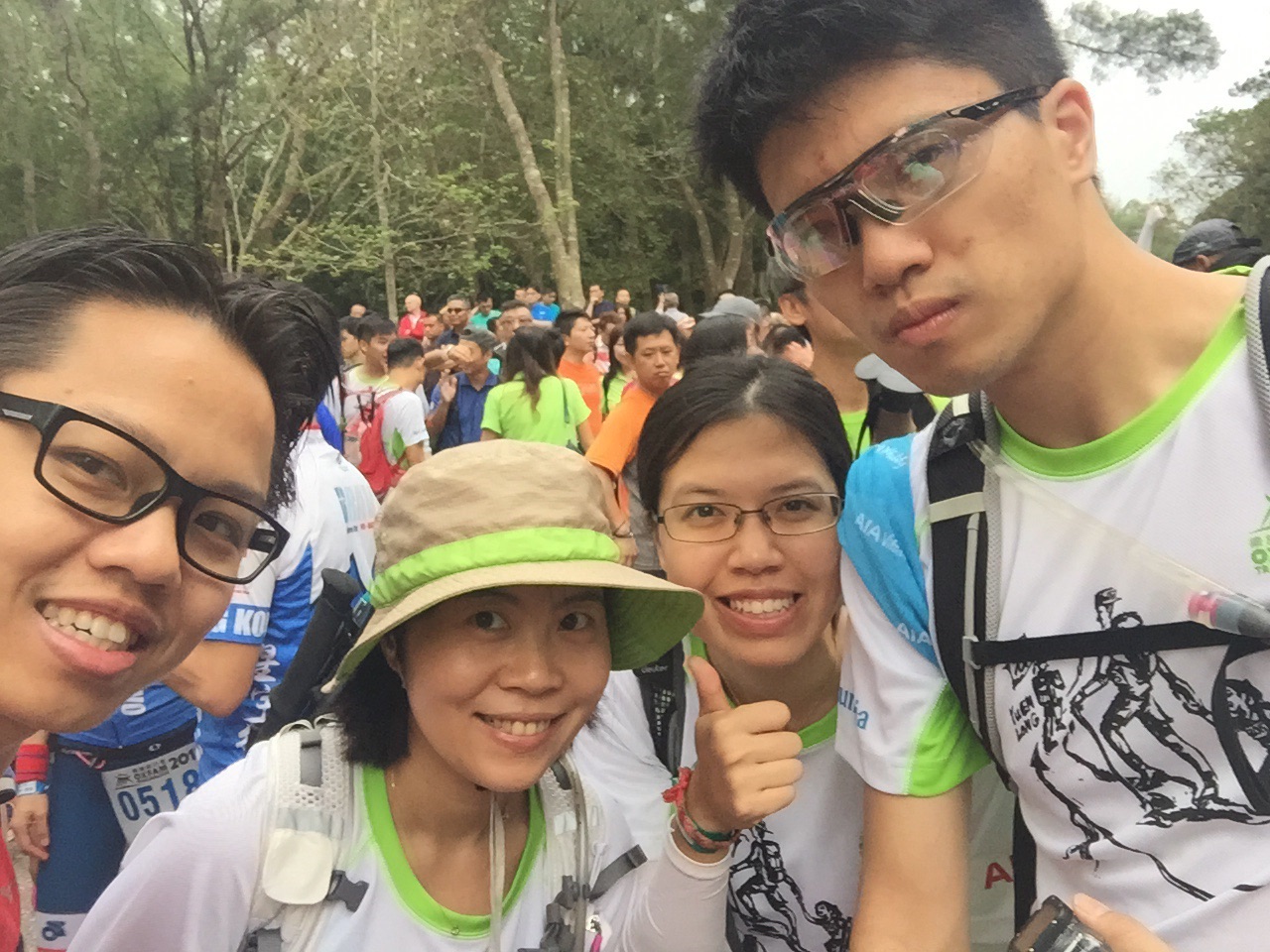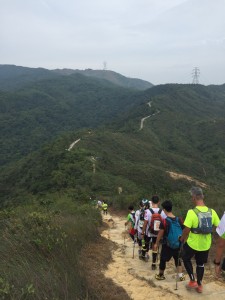乐施人乐施事, 筹款活动2015年12月10日
From ‘Trial’walker to ‘Trail’walker
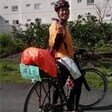
黄霭怡
黃靄怡是樂施會朝鮮項目的助理項目幹事。 她於2015年2月加入樂施會的大家庭。她曾從事可持續農業系統的工作,並對生態農業感興趣,她的工作重點是農村社區的食品安全。
By: Louisa Wong, Assistant Programme Officer (Oxfam Hong Kong)
Before I joined the Oxfamily, I read about Oxfam Trailwalker in South China Morning Post’s article titled ‘Nepalese team bid for Oxfam Trailwalker glory’. It said, ‘4,800 people in 1,200 teams completed the gruelling 100-kilometre mountain race to raise funds for the poor’. To me, words like ‘100 km’ and ‘gruellingmountain race’ sounded like a somewhat fearful undertaking. To swap my heels for hiking boots and finish the MacLehose Trail is just like running a marathon to me – I’m not sure if it is my cup of tea!
As I am a spontaneous decision maker, like last year, I had decided to cycle around Taiwan island and bought the air ticket just a week before departure. In July, when my event team colleague told me that there was still a spot left in Oxfam’s internal Trailwalker team, the spontaneous me said, ‘Why not give it a try?’ Without taking a second thought, or having found any teammates, I quickly replied my colleague’s email telling them to count me in and started to look for comrades. After a few weeks, three ad-hoc teammates came onboard: Annie from Beijing, and Wai and David two ex-trailwalkers from Hong Kong who are hiking fanatics. The challenging point was we hadn’t met each other, but we decided to take on this challenge of going through trails in the mountains for two days and two nights together.
People around me found it, again, a bit outrageous that I was taking up a physical challenge like this. Yes, it definitely is; but if you walk the 100 km as a team, you come to share each others’ pains and worries, and everyone’s joys are multiplied too! While training on the relatively hilly sections, I felt that I was a Trialwalker and struggled to complete the trails – both in terms of time and dealing with the physical challenges. Having suffered from muscle pains and sore knees after a couple of weekends of training, my body warned me of my limits. Pushed by my teammates, whose strategy was to focus on practising the toughest treks, we were pessimistic about setting a higher target. The big day eventually and finally came! We only met our teammate Annie who flew in from Beijing the night before; cheering with cans of cokes in our hands, we crossed our fingers for good weather and good luck (in retrospect, this might be a sign of insufficient preparedness). Although we had never practised as a whole team, and two of us experienced a knee and back injury during the race, at last our team finished the trail in 39 hours and became real Trailwalkers!
This painful but cheerful trailwalking experience actually taught me a bit about the essence of development work and project management: First, it’s true that things always progress slowly (especially when you are progressing slowly with an average speed of 3km/hr and fighting against heavy eyelids at night). Second, risks and crises will always pop up out of nowhere (e.g. foot injures, muscle pains, tempers from groaning teammates, time lags because of procrastination and not wanting to walk after having a sumptuous meal prepared by our support team). But if you have sets of clearly defined goals (e.g. to finish the race as a team in 40 hours); a good attitude to mange risks ‒ to put aside your personal goals and make plans based on the weakest walker in your team; are well-planned and have good monitoring tools (GPS system to keep track of your performance, have somebody to keep you awake when you are practically sleepwalking at night and when you walk off track); and most importantly, the right project team members and partners (of course, the countless event volunteers, support teams and my fellow walkers who were willing to give me their shoulders to cry and lean on) and sufficient financial commitment from donors (colleagues and friends who I raised funds from), step by step you will reach your final destination and deliver a good project that helps fight against poverty and inequality!
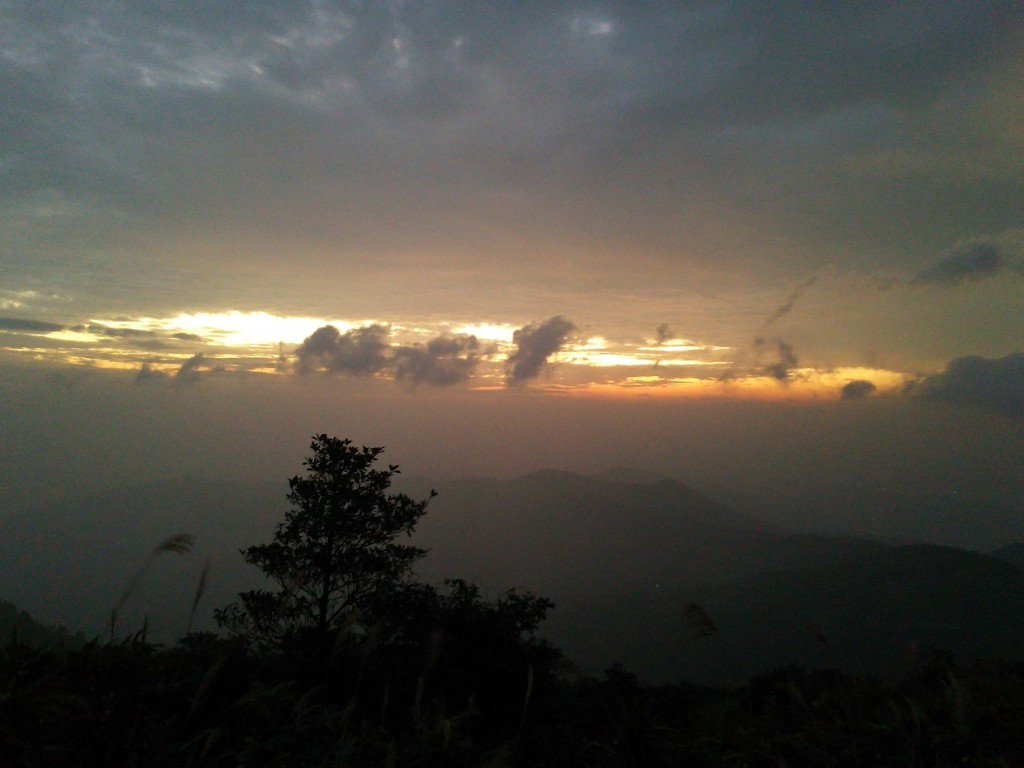
The beautiful scenery at Tai Mo Shan was the most rewarding gift after dragging my tired body for 30 hours. | Credit: Louisa
Louisa Wo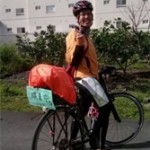 ng – Assistant Programme Officer of Oxfam Hong Kong’s DPR Korea country programme. She joined the Oxfamily in Feb 2015. With a background in sustainable farming systems and an interest in ecological farming, her work focuses on food security projects in rural communities.
ng – Assistant Programme Officer of Oxfam Hong Kong’s DPR Korea country programme. She joined the Oxfamily in Feb 2015. With a background in sustainable farming systems and an interest in ecological farming, her work focuses on food security projects in rural communities.

